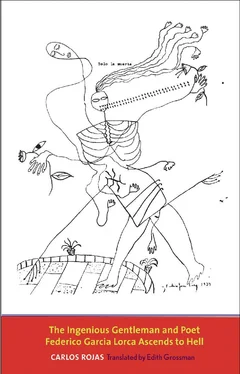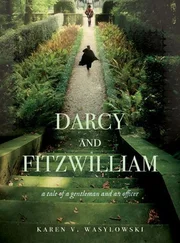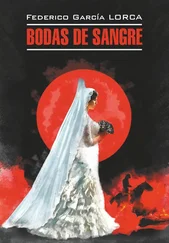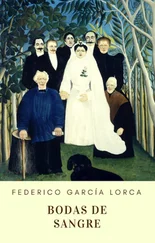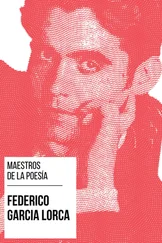Old, incapable of writing, and exiled to the American hell of gardens with pruned laurels ( Les Lauriers sont Coupés ), he could still go on dreaming his destiny, his arrest, and the endless spiral itself. He could dream himself murdered in the fullness of his creative talent. Lost afterward in his orchestra seat or in the curving corridor, until he became aware that the strange construction, a Tower of Babel where shades witnessed their memories without seeing one another, was nothing more or less than eternity. Always in dreams with a woman whose eyes combine Melibea and Albertine, he would feel nostalgia for any lived moment no matter how often memory obliged its representation on the stage, and a desperate desire for nothingness to put an end to insomnia. From the darkened theater and in those nightmares, he would deduce the trial and acquittal of certain of the dead, while Sandro Vasari’s orchestra seats and stage made him infer the anticipatory staging of the memories of the living. Finally, dreaming beneath the window with Venetian blinds, he would see himself in the third theater along the corridor: the addition to the theater that would be Vasari’s one day and where now, without his guessing it on earth, his future dead man’s memories were holding a general rehearsal. Occasionally he walked the distance that would take him to the damn theater, knowing the terror it held. In that theater, identical to the others but frosted with cemetery cold, he would witness the appearance of a gigantic cross above the Risco de la Nava, between Portera del Cura and Cerro de San Juan, crowning the basilica that housed the tapestries of the Apocalypse. “And the four beasts had each of them six wings about him; and they were full of eyes within: and they rest not day and night, saying, Holy, holy, holy … ”
The recollection of one apparition restored to him the memory of the other: the irascible, myopic one with the bald head, pink and polished like rare porphyry. The one who stated with certainty that after almost half a century he still lived hidden on Calle de Angulo, first because of fear of losing his life and now because of disgust with the present world and its vanities. (“If in addition to remembering who we were you maintained the dignity that belongs to us, you too would turn your back on that jungle and shut yourself in with me here in hell.”) According to that ill-tempered phantom, hell was the upper floor of the Rosales family’s house, where they hid him in a long-ago summer to protect him from the fury of crime unleashed. The world considered him dead and disappeared, to his moderate satisfaction, since his extreme passions were reduced to rage and rancor. His protector and jailer who, believing he was saving him, shut him away in a refuge that resembled him, was no freer now to resuscitate him than he was before to betray him. Furthermore, the old man thought himself eternal and also said he dreamed of him on the spiral to the precise extent he needed him in order not to lose his reason. (“You’re chained to my sleep, as he is to my waking, and you’ll continue to appear on nights like this so I can speak with someone other than Luis and solitude does not eventually drive me mad.”) Seized with the fear of having really lost his mind, as he must have felt at other times in his dialogues with phantoms (WHY DON’t YOU PRETEND YOU’RE CRAZY AND BE ACQUITTED?), he began to ask himself whether that old man, half demented and driven wild by loneliness, wasn’t correct when he called him one of his dreams and for good measure would not dream of the second ghost, the one who thought he lived on the other side of the world with an ambiguous woman and a garden of laurels.
Nightmares and apparitions brought him to the memory of a living man, the one he had seen talking with Ruiz Alonso in the Lyon. (“I dreamed about hell and saw it as an endless spiral along which a carpeted corridor ascended. Some theaters open onto the corridor, and a dead person corresponds to each one. And in precisely one of those theaters, the man you arrested and, according to what they say, also denounced, is awaiting trial … ”) Ruiz Alonso became impassioned then, replying that he wasn’t an informer and did no more than follow other people’s orders in arresting him. Evoking his protests in a parenthesis, he had a presentiment that the truth would never be clarified. He himself, victim of the obscure intrigue, was indifferent to it, not because he had forgotten the arrest and the shooting, even less because he had forgiven them, but because everything on earth, including personal tragedies, was material as distant in eternity as horses, ants, and men on the beach from the far-off perspective of the ocean.
Another distancing of a moral order was imposed by Sandro Vasari with regard to Ruiz Alonso. Though they both sat at the same table, one would say he separated himself from him with an invisible rod, as if his presence were as irritating as it was inevitable. From the beginning of the interview, marked with crosses of Lorraine, Vasari had been his absolute master. He made Ruiz Alonso confess to truths perhaps hidden until then and turned a deaf ear when he assumed he was lying. And yet, toward the end, he didn’t seem as sure of himself. Almost without taking a breath between sentences, he told Ruiz Alonso he had never seen him on the stages of hell when he dreamed them, then immediately said the contrary and admitted that in a nightmare he witnessed the poet’s arrival at the Andalucía express in the company of Rafael Martínez Nadal while Ruiz Alonso, looking out a window in the passageway, pretended to be unaware of his presence. Returning to Sandro Vasari and Ruiz Alonso, he thought he detected a correlation of analogous situations, like those of a single text in various languages on one palimpsest, between the meeting of those two men in a Lyon filled with amorous couples and readers of rustling newspapers, and his own dialogues with his extremely aged doubles in hell. In all three cases an old man apparently at peace with his conscience confronted a young man who turned out to be his hidden, buried truth. Except for all the distances and variants, the coincidence could not help but amaze him. He even asked himself whether that conversation between Ruiz Alonso and Sandro Vasari (“ … What did they do to you, Señor Ruiz Alonso? / Defamed me. Yes, sir, defamed me in writing and in published books ”) had ever happened. In other words, the words of a very obvious academic question, wasn’t everything his own dramatic imagination, performed on the stage of the theater that one day would belong to Vasari after his death? He even supposed an unconscious reason for the three phantasmagorias, the one in the Lyon, and the appearances of his ghosts. The three cases were no more and no less than embarrassing versions of the perpetually insoluble dispute between him and his father. Between his pederasty and the old man’s patriarchal virility.
Almost immediately, and with no effort other than letting himself be carried along by the evidence, he found himself obliged to change his mind. The quarrel with his father had been settled since the day of his arrest on Calle de Angulo. In reality, it had never existed (“Son, I’d give everything for you, including your mother and sisters and brother! May God forgive me! Be very careful! You can never fail me, never, never, never!”), even though his brother-in-law had to be shot and I had to fear losing him to find the courage to make that confession. In this way, and emphasizing the evidence, he saw how his entire reasoning or, to be more accurate, his attempt at reasoning, was invalidated by that call to the Rosales family’s house. A few days later, and after suffering as cruel as it was absurd, they killed him like an animal. There was never the slightest doubt, he told himself ironically, about that fact. Everything else, however, seemed debatable and uncertain. From that point on, the questions stopped being academic and were restated in a different context. Was it even possible that death was merely nothingness, plain and simple nothingness, as Luis Buñuel predicted and proclaimed so often in his obsessive atheism? (“Death, my dear, is nothing more or less than deafness and blindness forever and ever, amen. Without sight or hearing, the other senses encyst and petrify.”) Influenced perhaps by those words, he described death as a heap of extinguished dogs in his requiem for Sánchez Mejías. No, though it might be in the briefest of parentheses or a hurried note in the margin, that line in his elegy came from a more complex source. Almost unwillingly, he confessed it to himself. A few summers before the fatal goring, he had been with Alberti and María Teresa at Fernando Villalón’s farm. It made him uneasy when the other three began to talk about spiritualism, and Fernando, as if subdued by sleepiness, boasted of being able to conjure the souls of dead dogs. It was a motionless, silent night, studded with stars like spurs and fragrant with jasmine and mint. Suddenly, and panting heavily, Villa-lón slipped into sleep and the horizon filled with the barking of a furious pack of hounds. It stopped as suddenly as it had begun when that cattle-raising medium and surrealist poet awoke. He remembered nothing and was very surprised to see everyone overcome by fright.
Читать дальше
